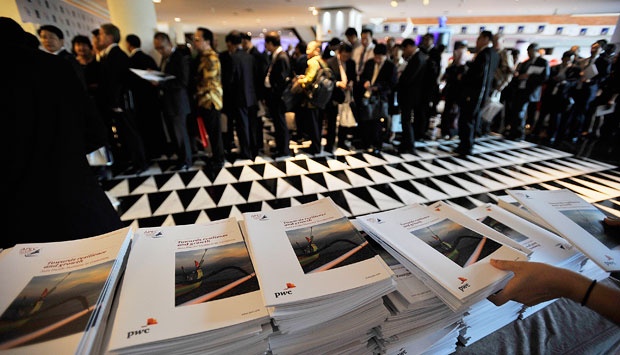US Commerce Secretary pledges TPP transparency, but not now

Tempo | 7 October 2013
US Commerce Secretary pledges TPP transparency, but not now
TEMPO.CO, Nusa Dua — US Commerce Secretary Penny Pritzker defended the secrecy of the Trans-Pacific Partnership (TPP) talks on Sunday, responding to questions from Indonesian reporters on the sidelines of the Asia-Pacific Economic Cooperation (APEC) summit in Bali.
Eventually the content of the TPP, a sweeping new trade deal much-maligned for its lack of transparency, would be available to the public, Pritzker told journalists in a question-and-answer session.
But it was very hard to negotiate when everything was subject to a public review, she said.
“At the appropriate moment when there’s a decision to be made, there will be much greater transparency,” she explained. “But it’s very hard during the process.”
After an agreement among the 12 countries had been reached, there would be a period for the public to consider it, Pritzker continued. This would take place before the parties had consummated the arrangement.
“The particular details will get revealed before any country is going to decide that they’re going to ultimately be committed to it,” she assured.
Pritzker gave no more specifics than that.
The TPP has come under fire on several fronts, not least for the way in which it has been hammered out behind closed doors. Though it has been billed as a free trade agreement, leaked texts have revealed that 24 of the 29 chapters have nothing to do with trade, but rather pertain to non-trade matters such as Internet freedom, intellectual property, financial regulation, the environment and more. For this reason, Lori Wallach, director of Public Citizen’s Global Trade Watch, has called it a “corporate Trojan horse.”
But transparency has been a central concern, with even some countries’ parliamentarians complaining that their governments have kept the TPP’s contents a secret.
Just Foreign Policy, a US-based nonprofit, has set up a website, freetpp.org, where citizens from around the world can pool their resources as a reward for Wikileaks if the organization can make public the entire TPP negotiating text. At last count the pot amounted to US$61,107.
In Bali, Pritzker answered reporters’ questions about whether the Indonesian government would have any say in what was being decided by the states party to the TPP in a quizzical manner, saying that the 12 states now negotiating were the ones that would ultimately make decisions, and that if other countries wanted to join, it was up to them.
But Riza Damanik, director of Indonesia for Global Justice, which addresses issues of global trade liberalization, said the TPP would affect Indonesians, if indirectly, whether their government was party to it or not.
“They have a responsibility because they are part of the problem in terms of the food crisis, the economic crisis, the environmental crisis,” Riza said. “They should be more transparent because the consequences of the TPP in fact can make a big impact on those crises.”
He likened the United States, which has spearheaded the TPP, to a man drowning at sea, desperate to grab hold and latch on to anything, or anyone, to save himself.
“It’s not fair if only some countries try to gamble with the future of the world in a closed process,” he said.
The TPP currently comprises of Australia, Brunei, Canada, Chile, Malaysia, Mexico, New Zealand, Peru, Singapore, Japan, the United States and Vietnam.
PHIL JACOBSON





